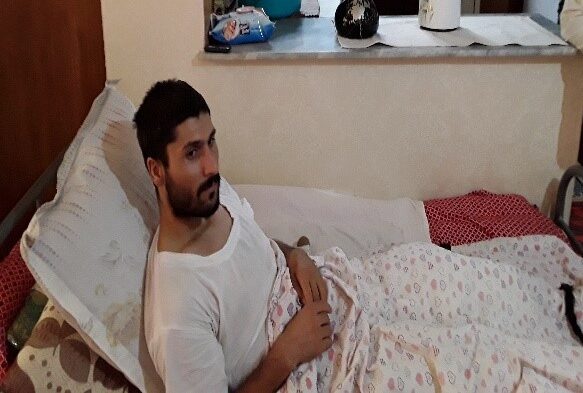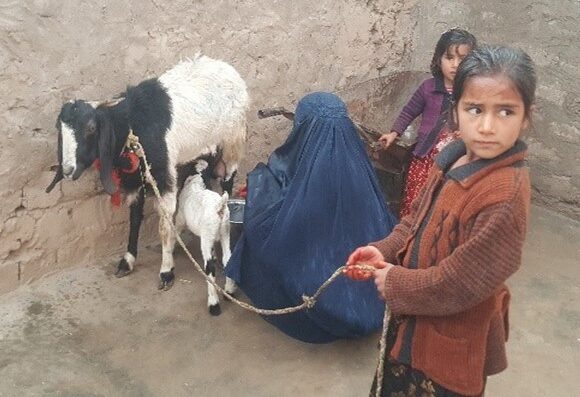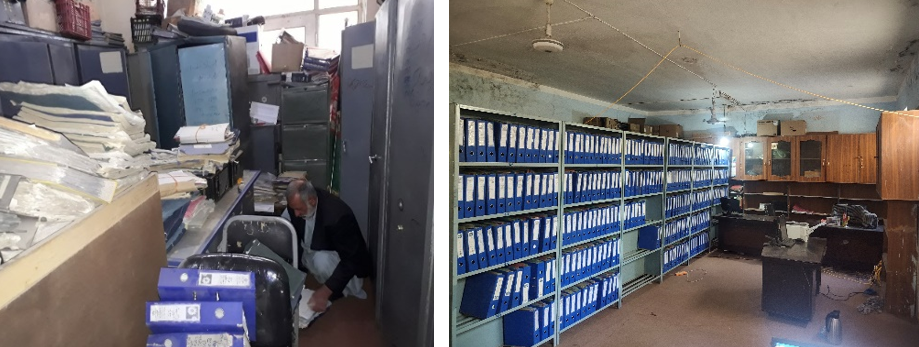Working with local and national partners, Blumont helps meet the needs of families today, while strengthening a foundation for the government’s long-term efforts to deliver assistance to victims of conflict.
As armed conflict continues in Afghanistan, thousands of civilians are caught in the crossfire of attacks each year. Homes and businesses are destroyed, and people are injured or killed—leaving families to cope with the trauma of loss while trying to rebuild their lives.
Blumont’s work for the USAID-funded Conflict Mitigation Assistance for Civilians (COMAC) activity works to meet the needs victims face in the immediate aftermath of events, while also helping to strengthen the systems and institutions that will enable more people to access the services they need. The COMAC team collaborates with local governance and the Afghan government to track incidents and identify people in need of assistance.
Rohullah was a university student when he was caught in the crossfire of a clash. He was admitted to a local hospital with a severe leg injury and was in danger of losing his leg to amputation. Notified by a district official, a COMAC health officer visited Rohullah and determined that his leg was not healing correctly, but the hospital lacked the medical expertise and technology needed to treat him.
Working with local authorities, the COMAC team arranged for Rohullah to be transferred to a private hospital where he received specialized care. After five days of advanced orthopedic care, Rohullah was on his way to full recovery.

Rohullah undergoing treatment at the private hospital after referral by the COMAC team
“I was feeling hopeless about my future and was concerned about my leg, but now I am slowly returning to normal life,” Rohullah said.
As Rohullah recovered, COMAC provided food, household items, and other basics that keep a family running day to day. This immediate assistance helps to alleviate some of the stress and burden on families coping with medical challenges or grief.
Recognizing that each situation is unique, COMAC tailors support to meet the needs of victims and their families. In addition to connecting people to medical care or trauma counseling, teams help families reestablish their livelihoods to earn a sustainable income.
Gul Pari, a mother of two, received assistance after her husband was killed in an attack. Without her husband’s income, she struggled make ends meet. She borrowed money from neighbors to feed her children, but it was never enough.
“I was sick of my life,” Gul Pari said. “At times, I wanted to end my life because I was worried about our future.”
Gul Pari reached out to the COMAC team who provided her with a pregnant goat. After the baby goat was born, Gul Pari had enough milk to feed her family. She also began selling milk at local markets. With Blumont training, she has expanded her business, selling eggs from her chickens and vegetables grown on her family’s land. Gul Pari is now earning 500 AFN a week—enough to support herself and her children.

Gul Pari milking her goat at home
As conflict continues, civilian victims will continue to need assistance. COMAC partners with the Government of Afghanistan to build the capacity of national and provincial governments to deliver the help victims need. The Ministry for Martyrs and Disabled Affairs leads Afghan efforts, but services to victims are often hindered by inefficient processes. In the Nangarhar Province alone, the Directorate of Martyrs and Disabled serves more than 26,000 victims and families each year. Services were often delayed due to the use of outdated filing systems. Paperwork was easily lost or misfiled, slowing aid to victims and their families.
COMAC worked with officials to establish new information management systems and trained staff to use the new filing structures, significantly increasing their efficiency and improving service delivery.
“The new filing structure has helped us keep our official documents in a proper, organized, and synchronized manner,” said staff of the Nangarhar Directorate of Martyrs and Disabled Affairs. “It has prevented document loss and accelerated service delivery to our beneficiaries.”

Before and After: COMAC team improves filing systems at the Ministry of Martyrs and Disabled Affairs Office
With teams providing services across Afghanistan’s 34 provinces, the COMAC activity is helping officials change how the country assists civilian victims. Outreach activities are reaching more people and increasing awareness of available support. By working in coordination with the Afghan government and local governance, COMAC efforts are setting the stage for sustainable progress in how the country provides victims assistance.
***
READ MORE



